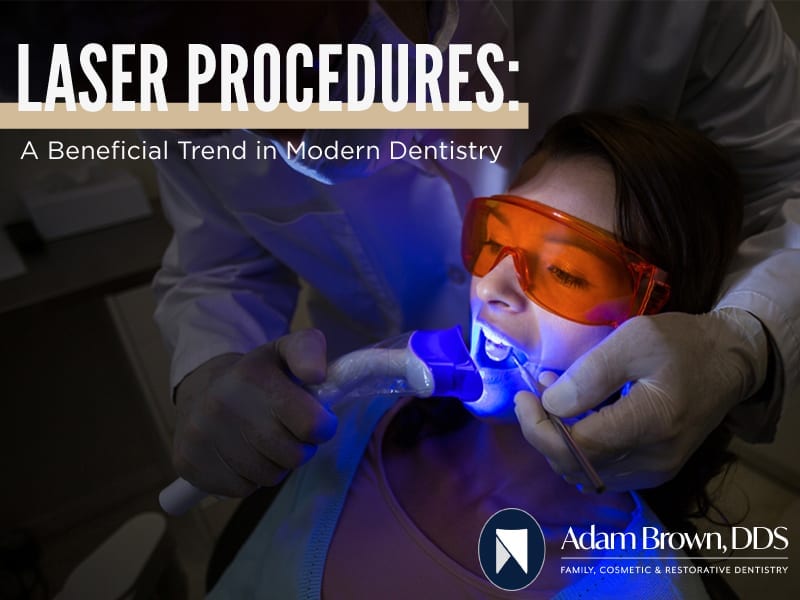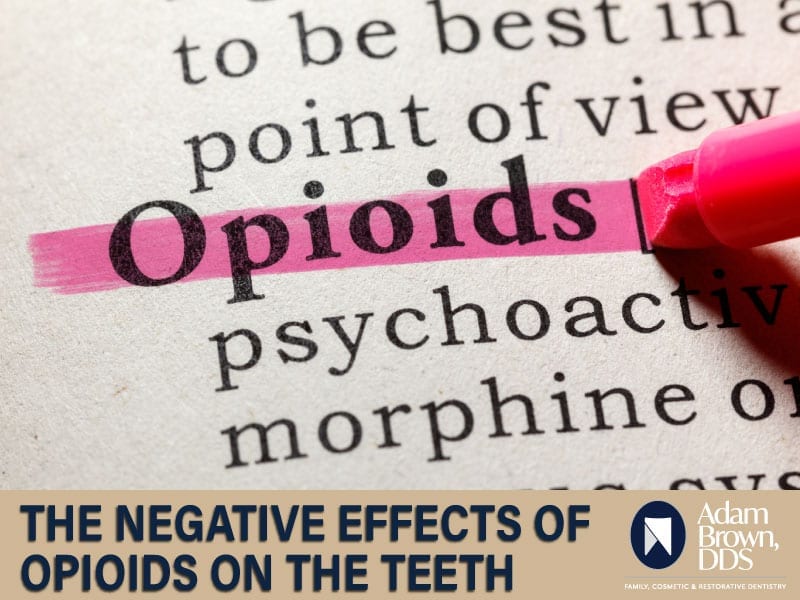Laser Procedures: A Beneficial Trend in Modern Dentistry

Lasers (Light Amplified by Stimulated Emission of Radiation) are used for all sorts of things these days: welding, cutting, printing, surveying—and dentistry. A laser is a device that uses radiation to stimulate light so that it can penetrate a foreign material, which makes it a perfect device for taking care of things like cavities or excess gums overlapping the teeth.
Some patients may have a bit of reluctance towards having a radiated light used inside their mouths, but realizing what a laser can do to cavities and gums, and understanding how safe it actually is, should quickly relieve any apprehension.
Since the mid-90s, lasers have been slowly incorporated into dentistry for use on such things as:
- Biopsies—since a laser is incredibly precise and reliable it can be used to remove a very small portion of tissue without affecting the surrounding areas. Using a laser also allows for a faster healing process.
- Tooth Decay—using a laser to remove the decaying portion of a tooth has proven to be a quicker and a more efficient process than using traditional methods.
- Gum Disease—a laser is a great way to reshape gums and remove built-up bacteria without damaging the teeth.
- Teeth Whitening—modern dentistry has found a way to whiten the teeth by applying a peroxide bleaching solution to the teeth then having it activated by a laser to speed the whitening process up. And it’s completely painless.
There’s even more that dentists can do with lasers. They can be used for reducing the pain of canker and cold sores, expose hidden wisdom teeth, remove excess muscles in the mouth that restrict proper movement, and help treat infections from root canals. And as we make advancements in laser dentistry, the list just continues to grow.
Lasers Treatments
Essentially, there are two types of lasers used in dentistry: one for soft tissue and another for hard tissue.
These use an absorbable wavelength, making them less dangerous to use on softer tissue like the gums. The surrounding areas can then absorb and handle the effect of the beam without being damaged. Another benefit to using a soft-tissue laser is that it has the capability to kill bacteria and simultaneously encourage new growth. Postoperative pain is minimal from the use of soft-tissue lasers because, at the same time they are penetrating one area of tissue, they are able to seal the surrounding blood vessels. Soft-tissue lasers are typically used for:
- Soft-Tissue Folds—devices such as dentures can cause actual folds of tissue in the mouth, which can become painfully uncomfortable and a health hazard. Using a laser is a painless way to reshape the gums and etch away areas of excess, molding the interior of your mouth to the shape it should be.
- Crown Lengthening—this is a form of gum reshaping so that the foundation of the tooth is strengthened and exposed from overlapping gums. Patients don’t always notice they need crown lengthening, but the procedure does make the tooth healthier in the long run.
- Muscle Attachment—for those who have limited tongue movement due to muscle restraints, a soft-tissue laser can be used to reshape or remove pieces of tissue to free up the tongue and allow for better movement within the mouth.
These types of lasers have a high enough wavelength that they can cut into hard tissues such as bone and teeth. This laser has such incredible accuracy that it only penetrates the desired material and causes little to no impact on the surrounding areas.
A hard-tissue laser is primarily used for prepping dental fillings. In the past, a drill was used to rid a tooth of unwanted bacteria before a filling was attached, and for this to take place the area had to be anesthetized and the prep and process were arduous. With a hard- tissue laser, there is no pain and therefore no need for anesthesia. The process is easier, faster, and much more accurate.
This type of laser is also used to help with overly sensitive teeth. On the root of sensitive teeth there can be found open tubules, which cause the unwanted sensation. By using a hard-tissue laser, a dentist can seal these holes and strengthen the teeth.
A Case for Lasers
There is a clear case for laser dentistry. The handful of procedures they are currently used for are just scratching the surface of what can be done with lasers. At Carolina’s Dental Choice, we’re excited about what can be done with laser procedures. Call or visit us today to make an appointment. It’s time to be confident with your smile, and we can help.

